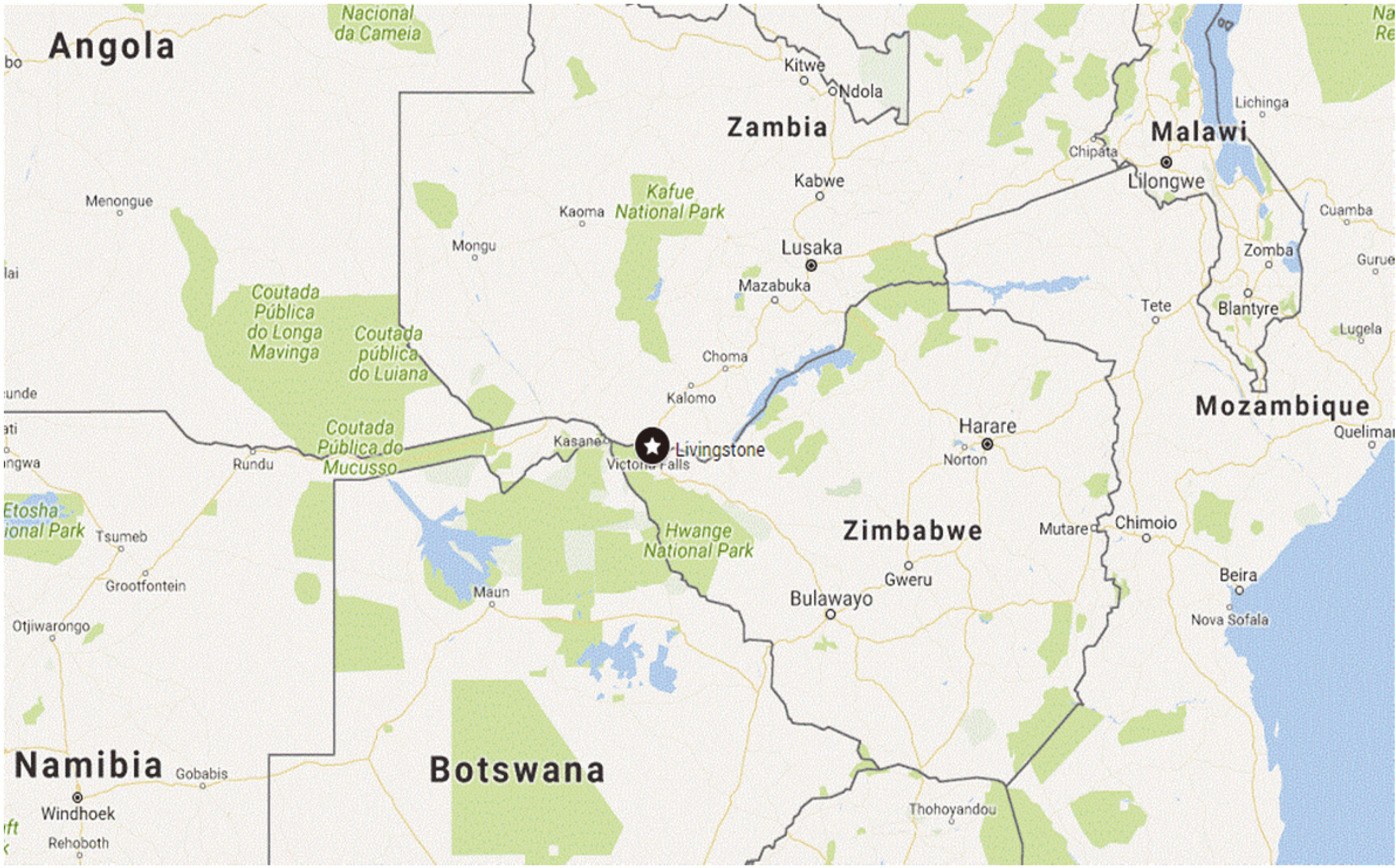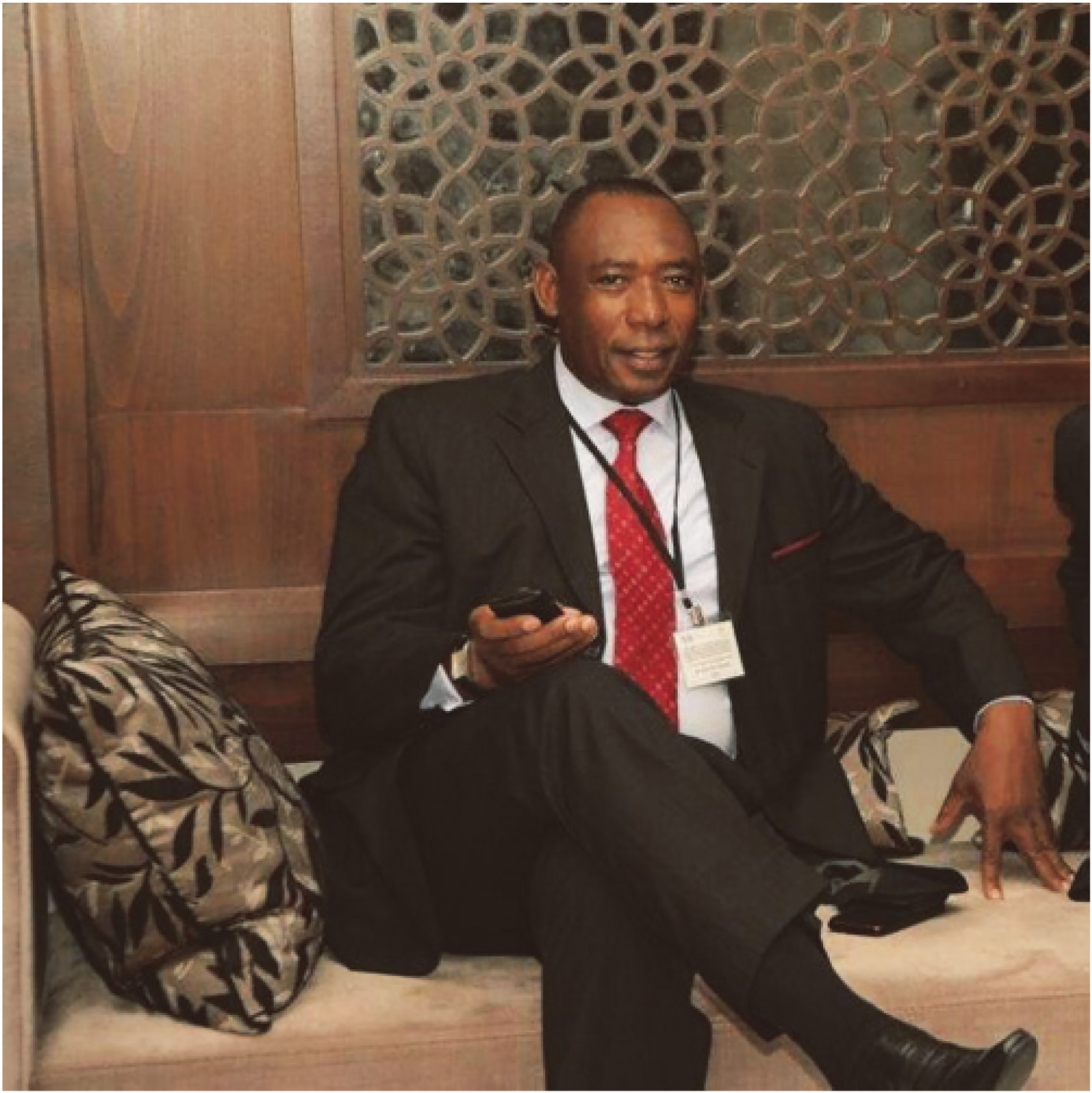Interviewer: Thank you so much for allowing us to interview you. Let us start at the very beginning and go back to your childhood in Zambia. What was it like growing up in your country?
Map 1.
Livingstone, Zambia and neighboring African countries.

Fig. 1.
Two views of Victoria Falls – Musi-o-Tunya.

Interviewer: What was your education like before university?
Interviewer: Looking back to our childhoods, we often find that a particular event or person had an impact on our later years. Did a particular person or event shape you into the person you are today?
Interviewer: Your CV states that you did a Certificate in Statistics in Lusaka Zambia, and a Diploma in Statistics at the University of Dar es Salaam in Tanzania before going to the University of Southampton in the UK to receive a Master of Science (MSc) in social statistics. How did that come about? Had you had any previous experiences outside of Africa before going to the UK?
Interviewer: You returned to school after a gap of about 15 years to get a Master in Business Administration (MBA) from Jomo Kenyatta University of Agriculture and Technology in Kenya, what spurred you to get an MBA?
Interviewer: You began your professional career at the Central Statistical Office in Zambia and rose through the ranks to the position of Deputy Director and acting Director. What did you see as your greatest satisfaction? And is there any one project while you were at the Central Statistical Office that you feel you will be able to look back on and say that it was your favorite project?
Interviewer: Could you give a little bit of background of the history of statistics in Zambia?
Interviewer: You left the Central Statistical Office in Zambia to be the Resident Regional Advisor for the International Monetary Fund (IMF). How did that come about?
Interviewer: This position entailed you promoting statistical capacity building activities in 21 Anglophone African countries. I imagine that there was some great variation in the statistical capacity over these 21 countries. Could you describe the various activities that were required? Could you give a little bit of background of the IMF’s role in these 21 countries before you arrived?
Interviewer: Is there any one project while you were in this position that you feel you will be able to look back on and say that it was your favorite project?
Interviewer: Over your career so far, how has your international experience impacted your views on government statistics and how has it helped you in thinking in the strategic direction?
Interviewer: Currently, you are the Director of the African Centre for Statistics (UNECA), could you tell me about the organization?
Interviewer: Most recently you were at the United Nation’s World Data Forum in Cape Town, South Africa, where you were on several panels
Interviewer: Conferences and forums are usually beneficial on a variety of levels – this being the first UN World Data Forum; what did you find most beneficial regarding this forum?
Interviewer: Did this forum experience impact your views on official statistics and has it made you change any of your thinking in the strategic direction or development/transformation as Director of the African Centre for Statistics?
Interviewer: May we ask you some questions pertaining to your other professional activities such as your involvement with the IAOS? How did you become involved with IAOS?
Interviewer: How do you see IAOS can have an impact on official statistics?
Interviewer: Your CV indicates a breadth of activities in a variety of arenas, and you have accomplished a lot already. Looking into the future, is there something you are still looking forward to accomplish?
Interviewer: Overall, what are some of the challenges you see facing statistician working in government settings?
Interviewer: Has the field of statistics changed since you received your education? If no, what has sustained it, if yes, in what ways did it change?
Interviewer: In conclusion, do you have any words of wisdom for students preparing for working in the world of official statistics?
This concluded our interview with Oliver Chinganya.







